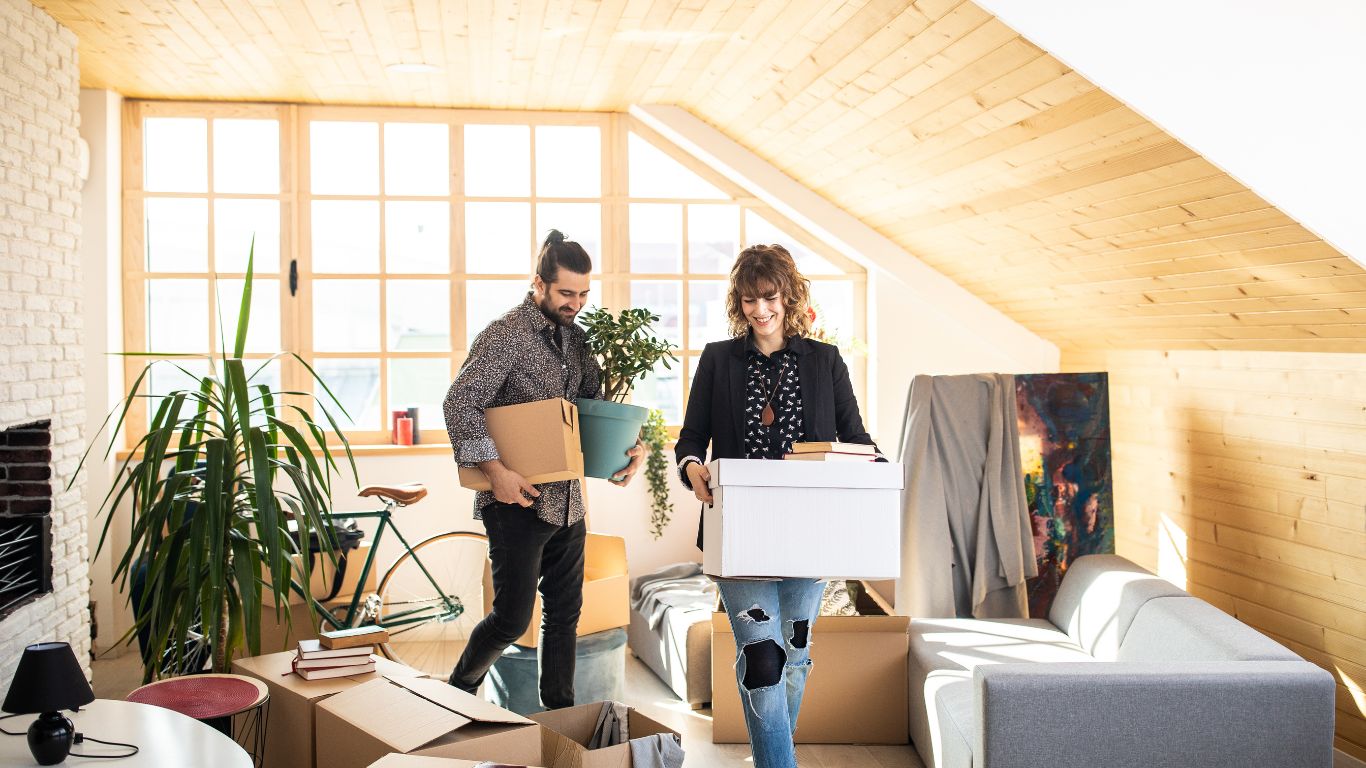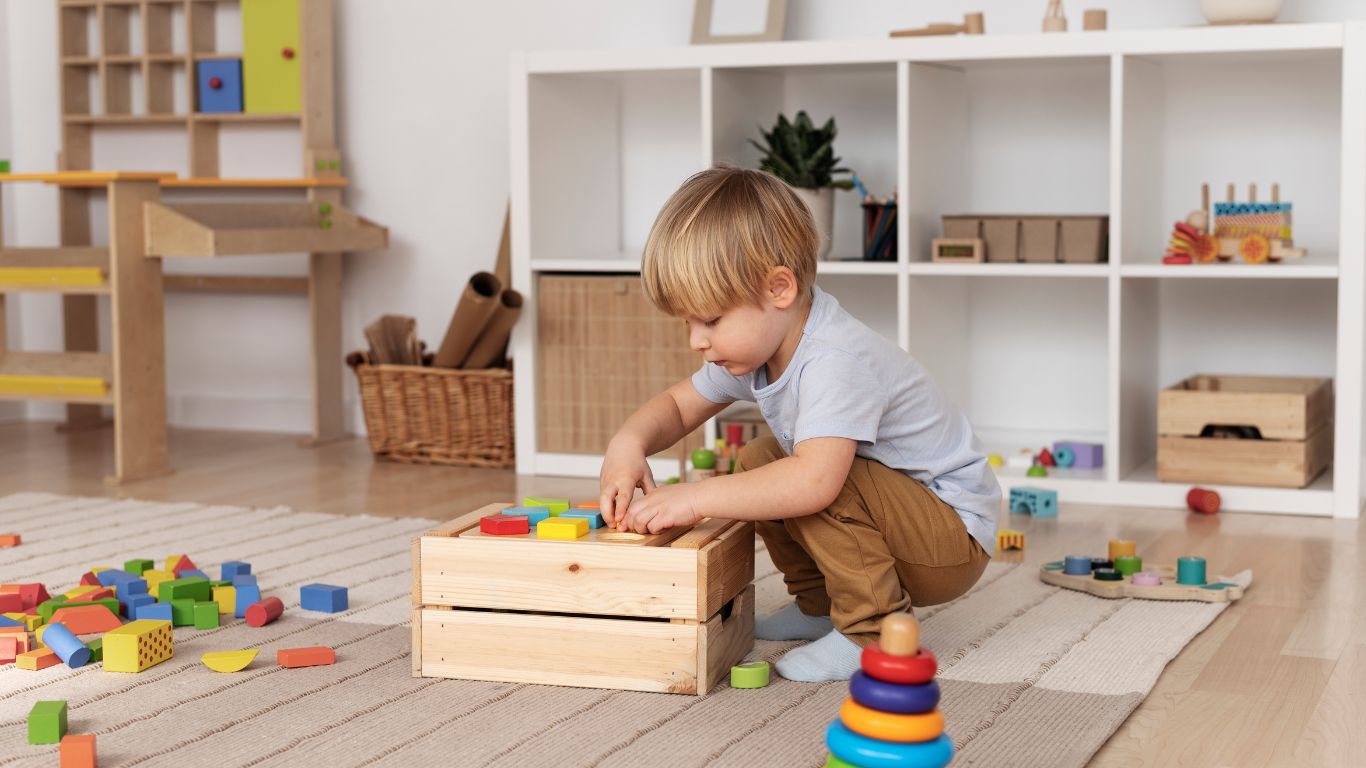If you’re tired of feeling overwhelmed and unproductive due to clutter and disorganisation, you’re not alone. Research shows that a messy environment can have a negative impact on our mental health, stress levels and productivity.
The good news is, by understanding the psychology behind organisation, you can learn how to create an environment that fosters productivity and happiness.
In this article, we delve into the science behind organisation and offer you practical tips to create an organised space that promotes productivity and happiness. From reducing clutter to bringing in natural elements, we cover it all.
How Clutter Affects Your Brain and Well-being
Have you ever felt anxious or overwhelmed by the sight of a messy room or cluttered desk? There’s a reason for that.
- One study conducted by the University of California, Los Angeles, found that women who described their homes as cluttered had higher levels of cortisol, a stress hormone, than women who described their homes as tidy.
- Another study conducted by the Princeton University Neuroscience Institute found that clutter can make it more difficult for your brain to focus and process information.
So, why does clutter have such a negative impact on our mental state?
The answer lies in our brain’s ability to process information. When we are surrounded by clutter, our brains are forced to process more information, which can lead to cognitive overload and decreased productivity.
The Benefits of an Organised Workspace
Now that we understand the negative impact clutter can have on our mental state and well-being, let’s explore the benefits of an organised workspace.
- Improved Productivity – An organised workspace can improve your productivity by reducing distractions and making it easier to find the tools and resources you need to complete tasks. When everything has a designated place, you can spend less time searching for things and more time getting things done.
- Reduced Stress – An organised workspace can also reduce stress by creating a sense of order and control. When everything is in its place, you can feel more in control of your environment and less overwhelmed by the demands of your work.
- Increased Creativity – An organised workspace can also increase creativity by providing a clear space for your mind to work. When your environment is clutter-free, your brain can focus on the task at hand, allowing for more creative thinking.
Tips for Decluttering and Organising Your Home or Office
Let’s explore some practical tips for decluttering and organising your home or office.
- Start Small – If the thought of decluttering is overwhelming, start small. Begin by tackling one room or area at a time, and work in short increments to avoid burnout.
- Get Rid of What You Don’t Need – The first step in decluttering is to get rid of anything that you no longer need or use. Be honest with yourself and consider donating or selling items that are in good condition but no longer serve a purpose in your life.
- Create a System – Once you have decluttered your space, it’s important to create a system for organising your remaining items. Consider using storage solutions such as shelves, bins and file folders to create designated spaces for your belongings.
- Stay Consistent – The key to maintaining an organised environment is to stay consistent. Make it a habit to put things back in their designated space after use, and regularly declutter and reorganise your space to prevent clutter from accumulating.
The Connection Between Organisation and Productivity
Studies have shown that an organised workspace can significantly improve productivity by reducing distractions and increasing focus. When everything has a designated place, it’s easier to find what you need quickly and get started on your work. A clutter-free environment can reduce stress and increase creativity, both of which are important for productivity.
- One study conducted by the National Association of Professional Organisers found that 82% of people feel more productive in an organised workspace.
- A study by the Harvard Business Review found that employees who work in an organised environment are able to work for longer periods without feeling fatigued.
When you’re organised, you can prioritise your tasks and manage your time more efficiently.
Creating an Environment that Fosters Productivity and Happiness
Let’s explore some additional tips for creating a space that fosters productivity and happiness.
- Bring in natural elements – Studies have shown that exposure to natural light can improve mood, while plants can reduce stress and increase productivity.
- Personalise your space – Adding personal touches, such as photos or artwork, can make your environment feel inviting and increase your sense of ownership.
- Prioritise comfort – Invest in a comfortable chair, consider standing desks, and incorporate ergonomic tools into your workspace to reduce strain and promote posture.
- Minimise distractions – Consider noise-cancelling headphones, closing your door or using a white noise machine to block out distractions.
Conclusion
Creating an organised environment that fosters productivity and happiness is an important step in achieving success in both your personal and professional life.
By understanding the psychology behind organisation you can improve your mental state, reduce stress and increase productivity.
At Wigwam Self Storage, we understand the importance of creating an organised environment, and we offer a variety of storage solutions to help you achieve exactly that.
Pro Tip: Whether you’re decluttering your home or office, or need storage while moving, our space calculator can help you determine the amount of space you need!


